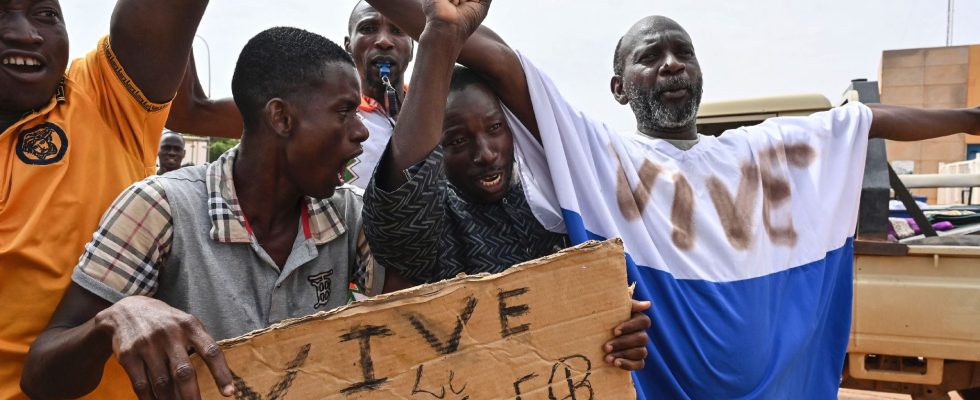On the last day of 2023, it is under the eye of the Prime Ministers of Niger and Burkina Faso, in traditional tunics, and that of Mali, in suit and tie, that the final of the traditional wrestling championship takes place. It is held in the arena of the Nigerien city of Agadez, in the heart of the Sahara. United since September within the brand new Alliance of Sahel States, the three juntas showed their understanding, a few days after the departure of the last French soldiers from Niger. Pushed out by a series of coups d’état, France had to resolve to withdraw the troops who were operating among its three former allies to fight alongside them against jihadism.
A new era has just opened in the Sahel, where the year 2024 promises to remain khaki. “It would be a mistake to believe that these regimes will only be a parenthesis, the authoritarian turn will last, explains Jean-Hervé Jézéquel, director of the Sahel project of the international organization Crisis Group. Their discourse focused on sovereignty makes them popular , particularly among urban youth, seduced by a form of disengagement from international partners and the ruling elites installed in power since the wave of democratization of the 1990s.”
However, this turning point should not improve the fate of the populations in the months to come. Quite the contrary. “There will be no way out of the current cycle of violence, continues Jean-Hervé Jézéquel. The situation continues to deteriorate, with a rise in the number of civilian deaths, the first victims of violence perpetrated by jihadists, national armies and Wagner’s Russian mercenaries. Everyone has blood on their hands.”
Freed from the French threat, the jihadists should continue to extend their hold on the countryside, even if this progression is accompanied by a fierce struggle between the Support Group for Islam and Muslims (GSIM), affiliated with Al- Qaeda, and the local branch of the Islamic State group. Can they take big cities? “It is possible, although the most likely is that they will find themselves under blockade, because the security forces are strong enough to hold them,” said Michael Shurkin, of the American consulting firm 14 North Strategies. This expert does not believe in an Afghan scenario, when the collapse of the army, with the American withdrawal, had opened a boulevard to Kabul for the Taliban: “The head of the Malian junta, Colonel Assimi Goïta, improved the morale of Malians, notably with the conquest of Kidal, in the far north of the country.
This symbolic victory was obtained with the help of Wagner’s fighters, who did not hesitate to hoist their flag on the fort of the city recaptured from autonomist Tuareg groups. Russian mercenaries could therefore still play an important role in the Sahel in 2024, despite the death of their boss Yevgeny Prigozhin, who challenged the Kremlin’s leadership in the war in Ukraine, last August. “They should continue to do the same thing, even if it could take place under more direct control from Moscow, whose growing influence we can see in Burkina Faso,” underlines researcher Michael Shurkin.
Several Russian military advisers have just settled there. And, after thirty-one years of absence, Russia reopened an embassy in Ouagadougou, a few days after France announced the closure of its own in the Nigerien capital, Niamey. Like Mali and Burkina Faso before it, Niger received a Russian military delegation at the beginning of December. Something to worry Westerners.
.
